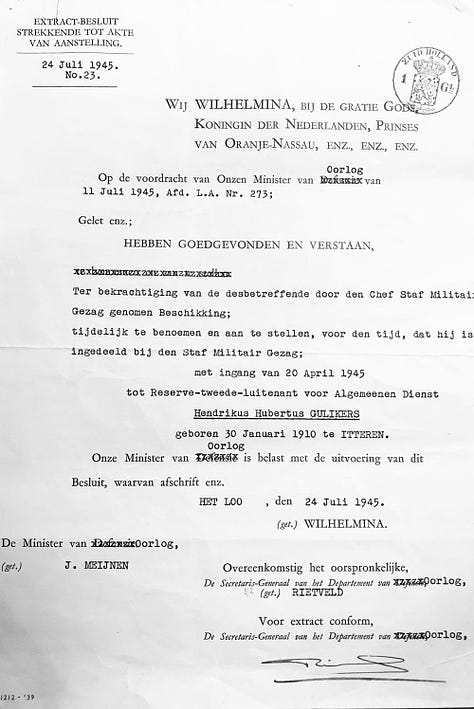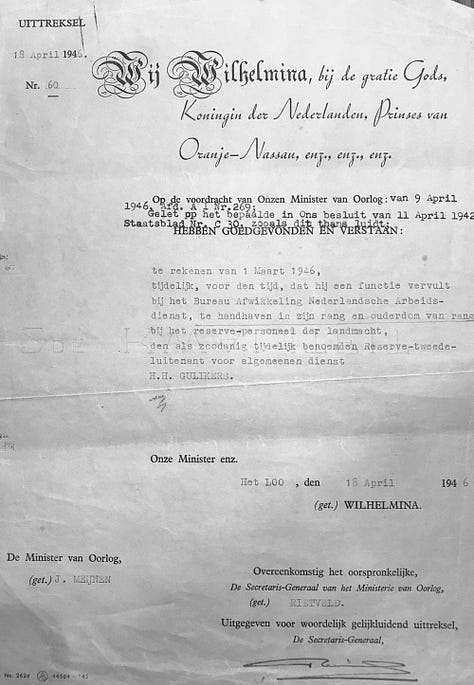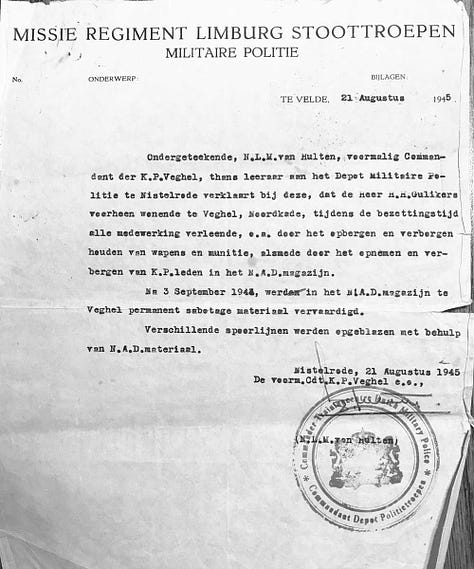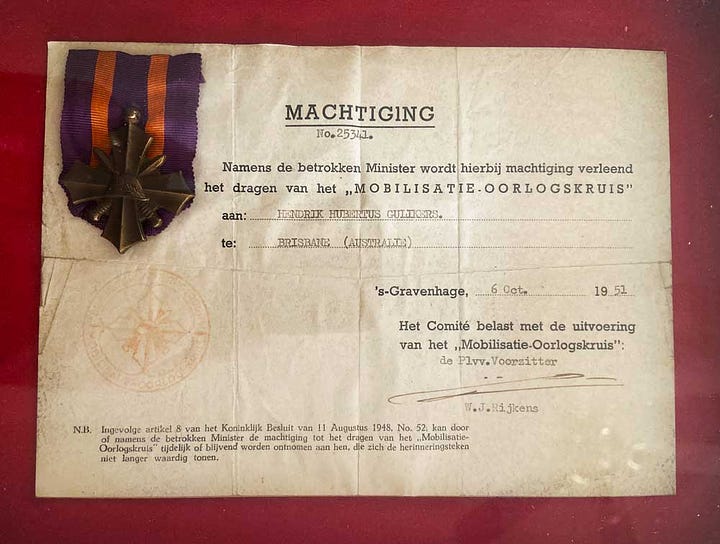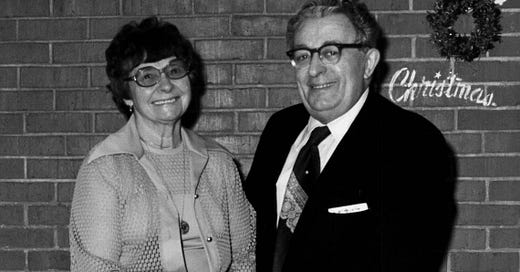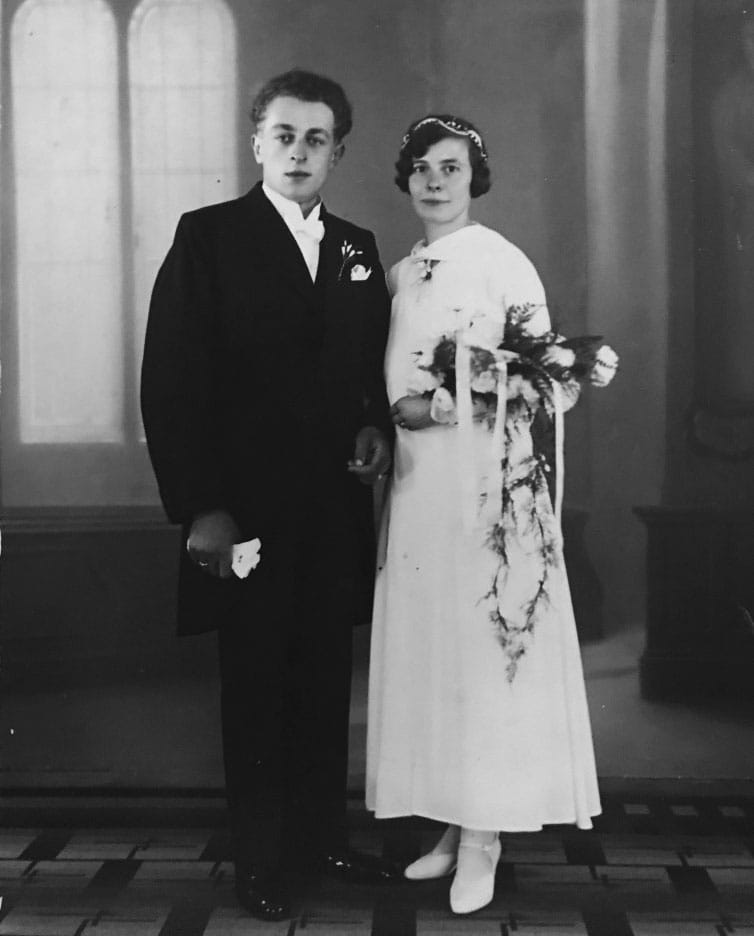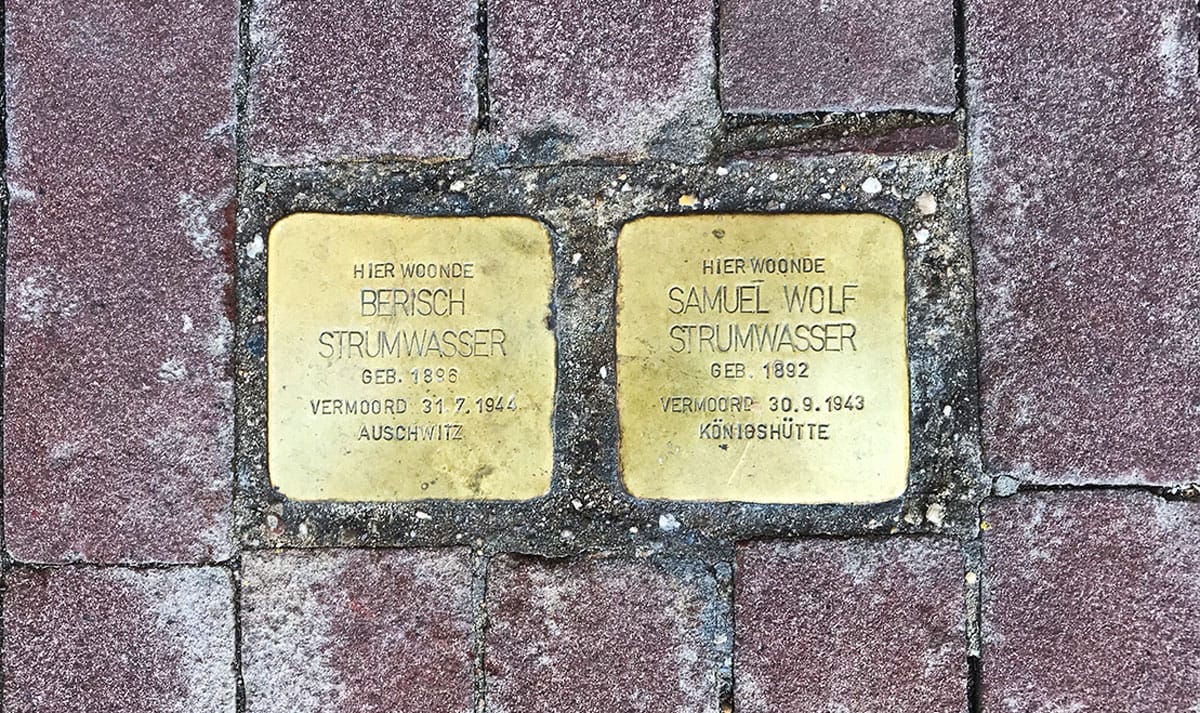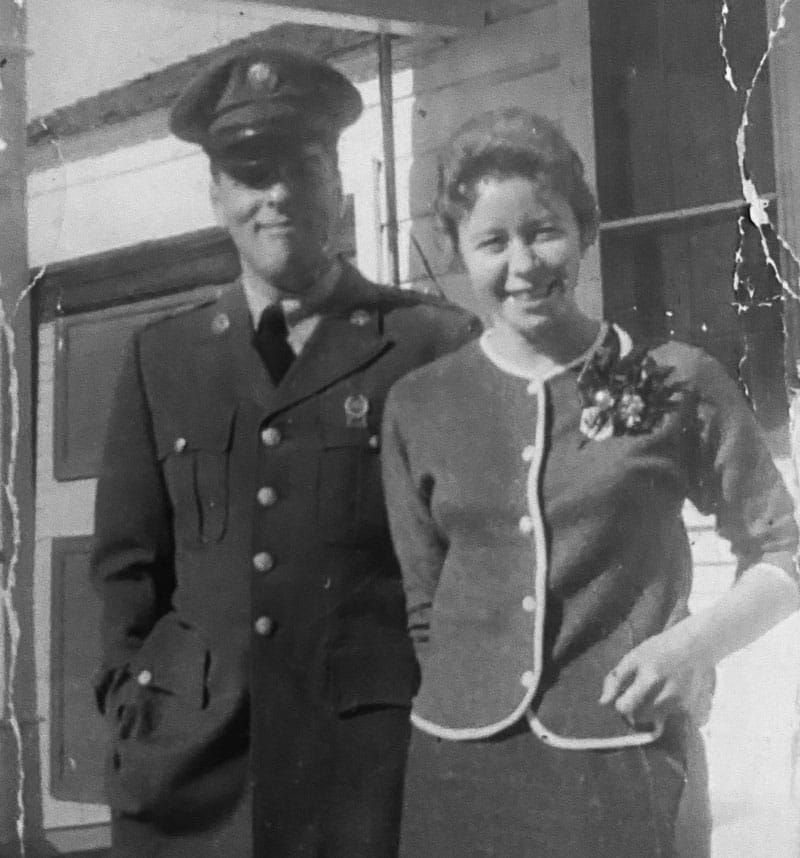A Tribute to Harry and Maria Gulikers
My Dutch family history from World War II is a huge reason for my passion in keeping the legacies alive.
Today I wanted to take an opportunity to pay a special tribute to my Dutch grandparents, Harry and Maria Gulikers, who are a big reason why this website exists.
Hendrik Hubertus Gulikers (Vader) was born in Itteren, Netherlands, on 30 January 1910. Maria Elizabeth Stegen (Moeder) was born in Borgharen, Netherlands, on 24 January 1908. They were married in Borgharen on 9 July 1932. From that time they had eight children;
Herbert, born in Maastricht, 1933
Josephine, born in Maastricht, 1934
Leo, born in Maastricht, 1935
Julius, born in Maastricht, 1936
Johanna, my mother, born in Den Haag, 1939
Peter, born in Den Haag, 1940
Martinus, born in Den Haag, 1941
Theresia, born in Wijhe, 1943
These ten members of the Gulikers family would live through the horrors of World War II and five years of Nazi occupation in the Netherlands.
Their ninth child, Robert, was born in Veghel in 1945, several months after the Americans had landed in their town for Operation Market Garden.
Seven more children would be added to the family in the years after the war - Johnny (who died two days after birth), Joseph, Catharina, Ron and John (twins), Carla, and Yvonne.
To say they had a large family would be an understatement!

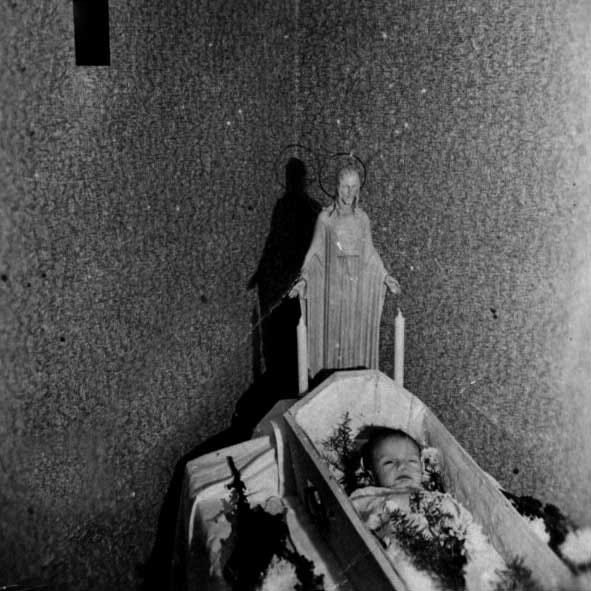
Some of the stories and memories of this wartime experience were shared with me by my grandparents, but most have been collected from the oldest of their five children who lived through the occupation.
I am honored and forever grateful to each of them for giving me the opportunity to listen and to pass along their stories to others who are interested.
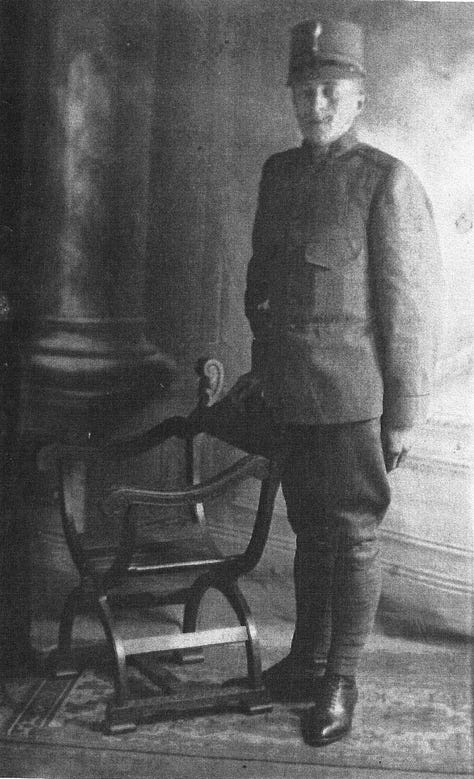
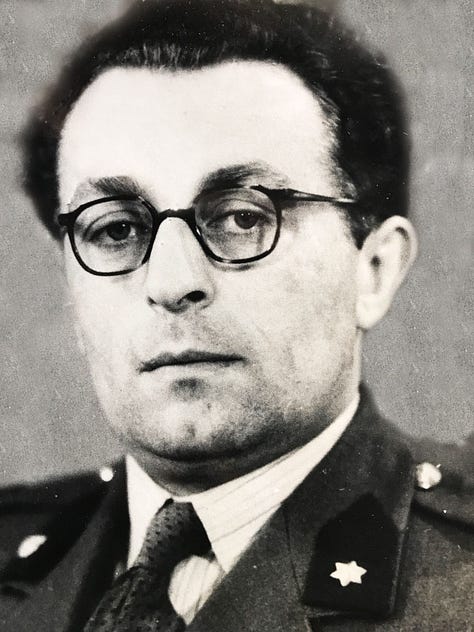
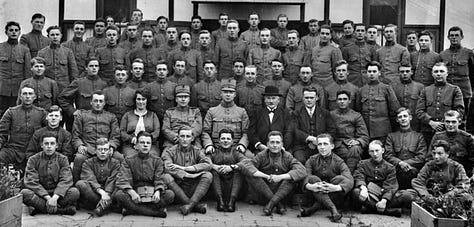
The Gulikers Family in World War II
Hendrik Hubertus Gulikers began his service in the Royal Netherlands Army on 20 March 1930 at the age of 20. He spent many years in the military and rose up to the rank of Lieutenant before the onset of the war.
My grandparents lived in and owned a butcher shop in Maastricht during the 1930s. This was the place where the first four children were born. Eventually they sold the shop to a Jewish couple and moved to Den Haag, perhaps in preparation for the war they knew was coming.
Sadly we discovered the Jewish couple, Berisch and Samuel Wolf Strumwasser, were eventually rounded up and murdered in the concentration camps.
On May 10, 1939, the Germans invaded the Netherlands.
Harry Gulikers was one of the men assigned to protect Queen Wilhelmina and help the Royal family escape Nazi capture. The Queen offered the Gulikers family the opportunity to leave with her, but my grandfather refused as he feared the time it would take to get his own family on board would compromise the mission.
My Uncle Leo remembered the Fallschirmjäger, or German Paratroopers, falling from the sky and landing in Den Haag that day. He told me about my grandfather and Prince Bernhard shooting at them before capturing one of the paratroopers in the Royal courtyard. Leo said it was all so unbelievable.
The rest of World War II for the Gulikers would be spent hiding and fighting.
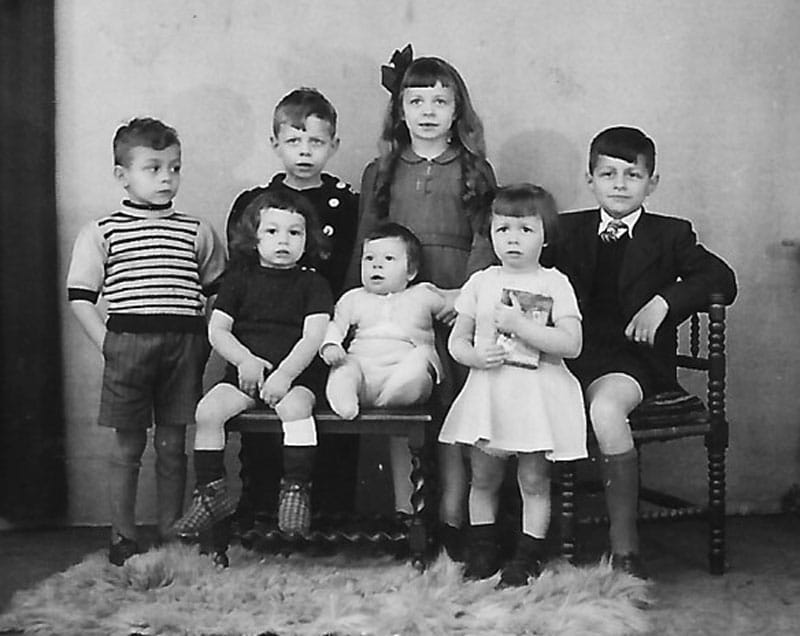
Den Haag to Wijhe
My grandparents decided to stay in Den Haag for as long as they could after occupation, but because they would hide Jewish people and spies, the risk became too great. Their neighbors became Nazi sympathizers, Dutch Nationaal Socialistische Beweging (NSB), and started reporting on my family.
The Waffen SS had my grandfather on a list so the Gulikers fled to the countryside.
Over the next five years they would be involved with Dutch Resistance, continuing to help Jews and downed pilots escape, hiding and moving weapons, gathering intelligence, and blowing up buildings or railroads to slow the Nazi war machine as much as possible.
They were in constant danger and survived on very little food.
My mother once told me about an older couple in Wijhe who agreed to hide the family in their farmhouse. The Gulikers were starving and malnourished and they lived on bread and milk they could find.
Because my Aunt Theresa had just been born and my grandmother needed protein, Moeder would sneak into the kitchen to steal a thin slice of meat each day, hoping the farmers would never catch her.
Other times they would be in bomb shelters for days or weeks, covered in lice, while being forced to eat tulip bulbs or scraps of bread to stay alive.
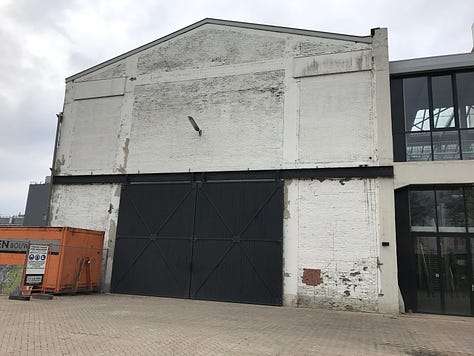
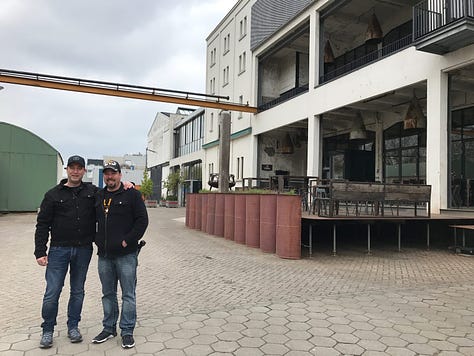
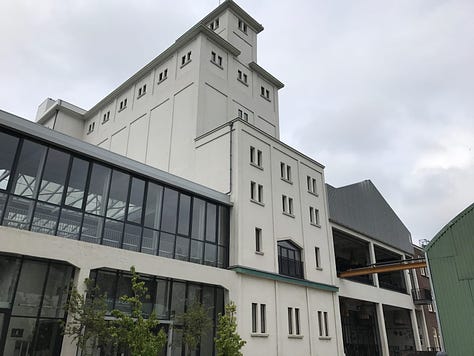
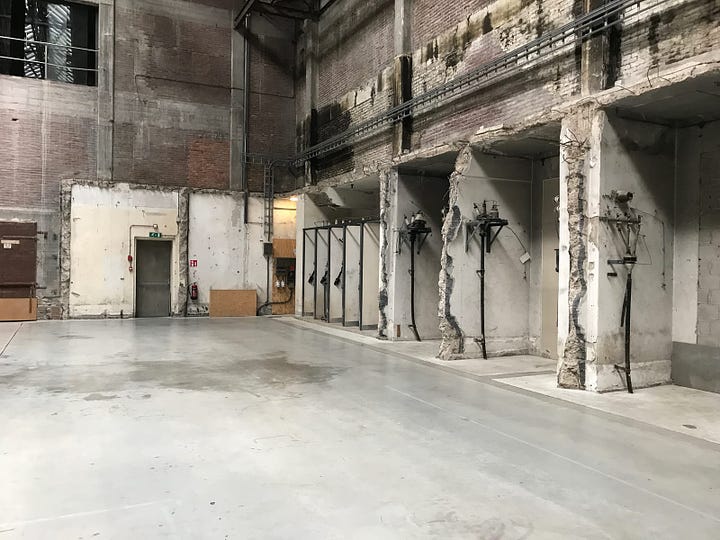
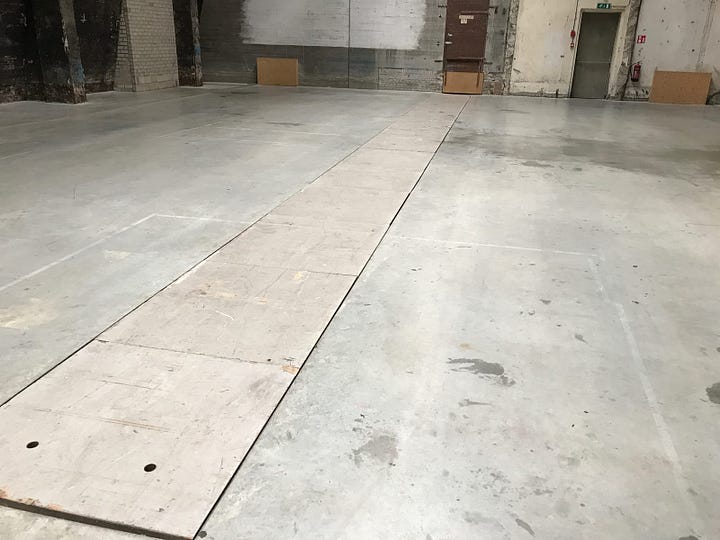

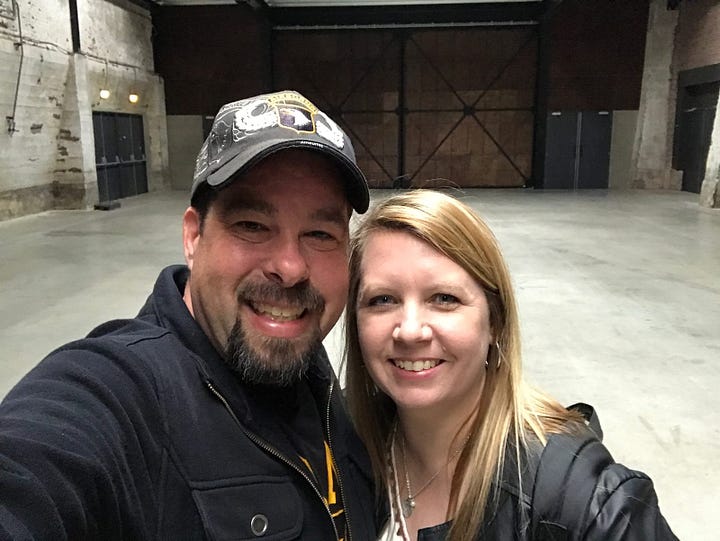
Wijhe to Veghel
When they made it to the town of Veghel in 1943, they were provided with a warehouse on the Noordkade to live.
Uncle Herb said it was a very long building where furniture from the government was stored. The railroad tracks went right by the front of the warehouse, next to the canal, and it was located right beside the old milk factory. Part of the building on one side was converted into living quarters for the family.
Apparently this was also a base of operations for the local Dutch Resistance.
My grandparents hid weapons and ammunition, as well as Allies in this location. The Germans suspected this so regular visits from the local SS or Gestapo were common and quite scary.
One day my grandmother was walking home from the store when she noticed the SS had parked in front of the warehouse while the children were there. She fell weak in the knees and started crying because she knew what that meant. But the Germans were interrogating people at the milk factory.
Another time they came storming into their living quarters and pointed their Luger pistols at the heads of Jules and Johanna, threatening to shoot them if they didn't talk about the operations.
The Germans started bayoneting the closets and places where people or supplies would be hidden. By the grace of God they never found what was there that day or all of them would have been shot on site. This was daily life for the Gulikers.
Other horror stories would be heard as well.
My grandfather told my dad that Dutch boys who refused to work or fight for the Nazis were often skinned alive and hanged from poles in the ground.
My grandmother talked about the screams of the Jewish people as they were stripped and separated onto cattle cars in Maastricht.
Uncle Leo watched a beautiful Dutch girl singing in her second story window of a home, only to be shot and killed by a German soldier who didn't like it.
Aunt Theresa, as a baby, almost died from falling glass when their warehouse was under artillery fire. The nanny grabbed her from her bed and saved her life.
Aunt Josie remembered seeing and hearing the fearful sound of the V1 and V2 rockets as they screamed overhead.
Several of the kids were almost killed when a British Spitfire strafed the local pool while the Germans and Dutch people were swimming. Apparently it is was next to a Messerschmitt engine factory! They ran and left everything. Jules busted his head open trying to escape.
My family members were constantly being bombed, threatened, or harassed.
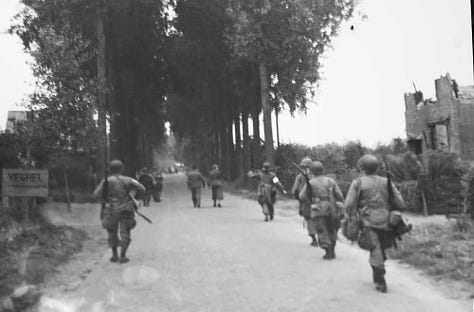
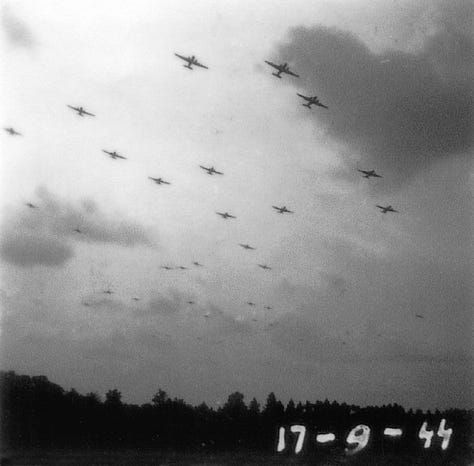
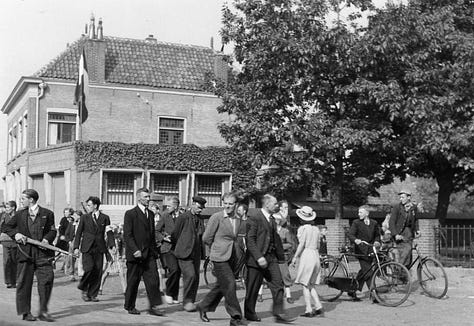
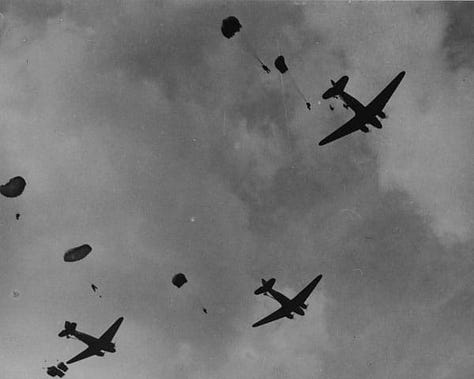
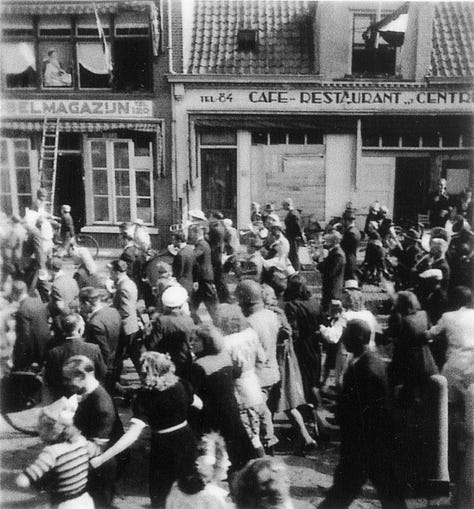
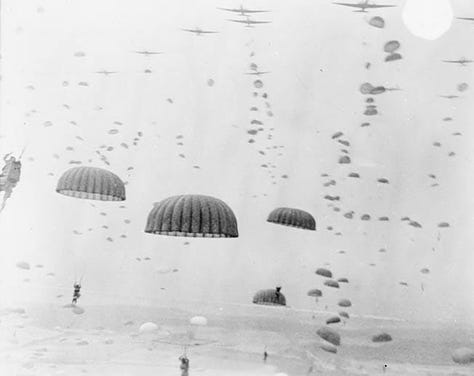
Operation Market Garden
On 17 September 1944, around 1 p.m., as the Gulikers family started to arrive home from their Sunday walk to mass at Sint Lambertus in the center of Veghel, they heard an eerie sound as the sky above started to turn black.
My grandfather began shouting, Amerikanen! Amerikanen!, as hundreds of C-47s and WACO gliders filled the skies as far as they could see.
Thousands of paratroopers from the 101st Airborne Division, 82nd Airborne Division, and other Airborne regiments from Britain and Poland, had begun their invasion of the Netherlands in the mission to liberate the Dutch people and end the war in Europe.
Uncle Herb watched in horror as the German Army shot paratroopers as they fell from the sky, later burying some of them with the help of my grandmother.
My mother Johanna remembered seeing hundreds of parachutes, mostly white, but also others that were different colors - yellow, red, blue.
Others remembered the chaos and excitement of what was happening, grabbing anything orange to wave and signify victory.
My grandfather rescued a paratrooper stuck in a burning glider. The man eventually came to their home and when the kids asked him about the pouch on the front of his body (a reserve chute), he pulled the rip cord and out came a large parachute. They were amazed by this. Eventually that parachute was used to make clothes and my mother still has her parachute dress to this day!

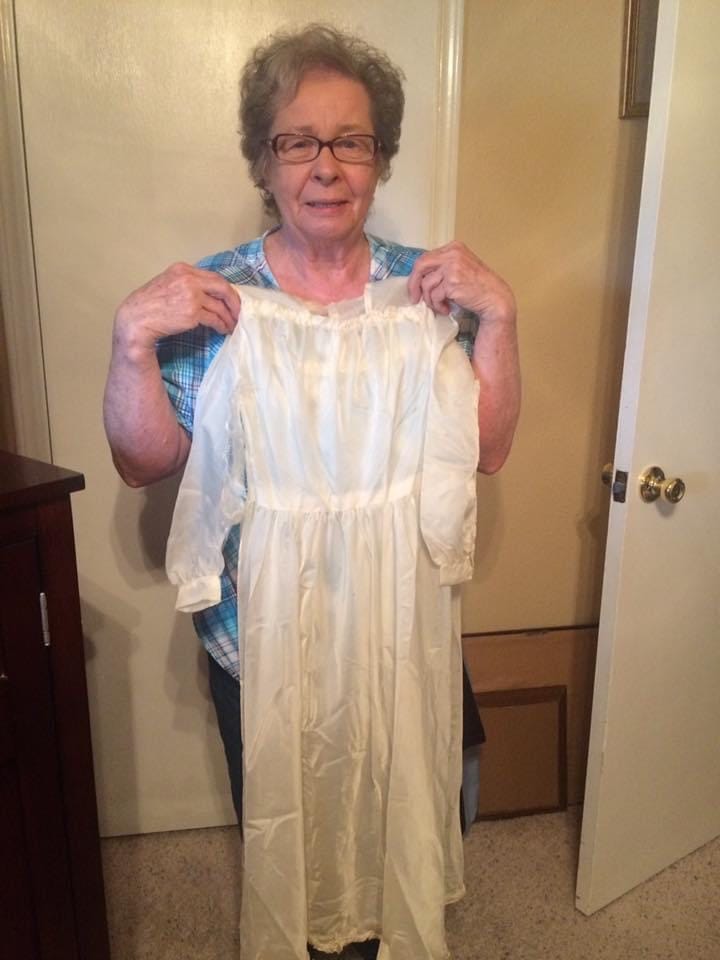
One day the artillery was so bad, the Gulikers were forced to abandon their home to seek shelter for days in a basement filled with gypsies and other people. They had to drop everything to zig zag to safety because bullets were flying everywhere.
On another day, my five year old mother was getting a bath when the shelling started to happen. Everyone ran to the foxholes outside in the back of the building – except my mother. When it was all over, the American Paratroopers found her in the warehouse in a hiding hole, sitting naked on their boxes of explosives.
Then they told me about the time Uncle Herb and Aunt Josie carried a large pan of soup across the White Bridge and canal to feed the Americans. By the time they arrived the pan was empty and filled with bullet holes.
That was the "normal" life of the family in World War II.
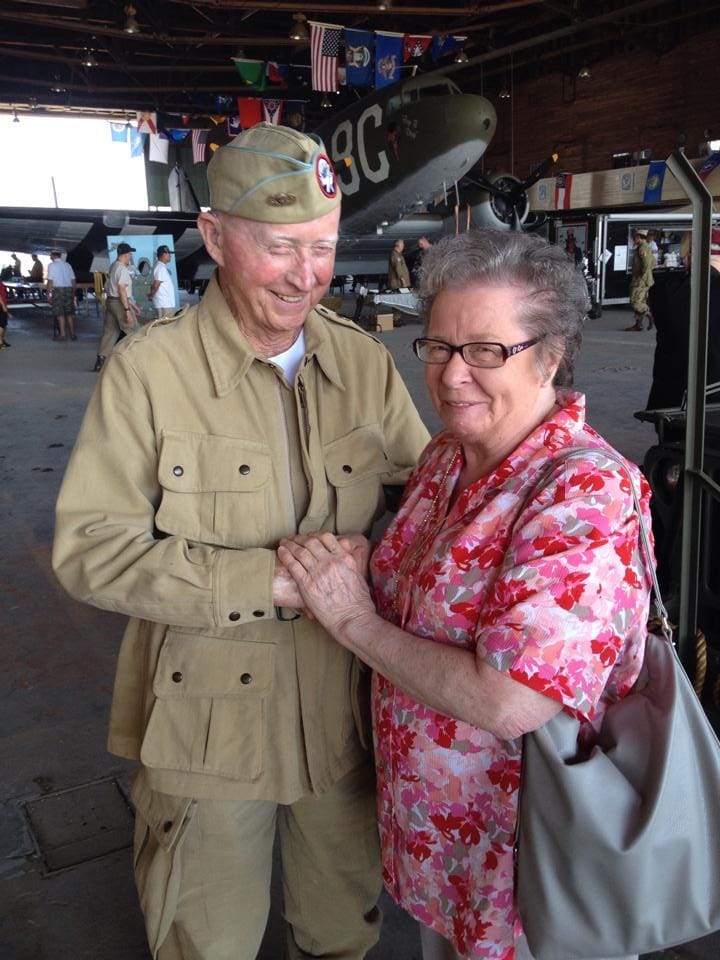
The 101st Airborne and the Gulikers
In the days and weeks that followed Market Garden, my family would come to love the Americans dearly.
Dozens of 101st Airborne Paratroopers from the 501st and 506th Parachute Infantry Regiments (PIR) would eventually take up residence in that warehouse, staying and sleeping while not in battle. And, from what I understand, this included a visit from Major Dick Winters.
Uncle Jules was very fond of the paratroopers. They taught him to fish the canal with hand grenades and threw a surprise birthday party for him that included cake. After a few days of being there, one of the guys even asked Jules to watch his stuff and his bunk only he never returned because he was killed in battle. Jules was absolutely devastated.
The other kids remembered how amazing the Americans were. They were treated to so much chocolate, candies, and cigarettes that they got very sick. It was surreal.
Uncle Leo always remembered their uniforms and demeanor. He was so moved by these men that he wore a nice shirt, tie, and American Flag pin almost every day of his life to honor their sacrifices.
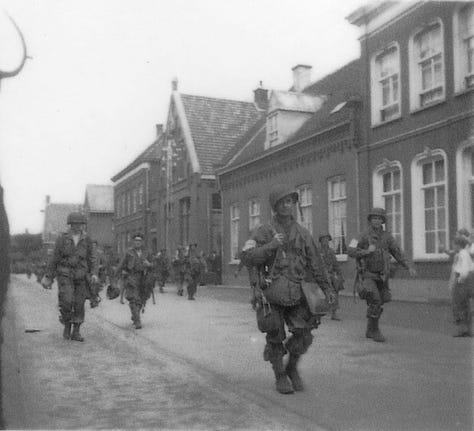
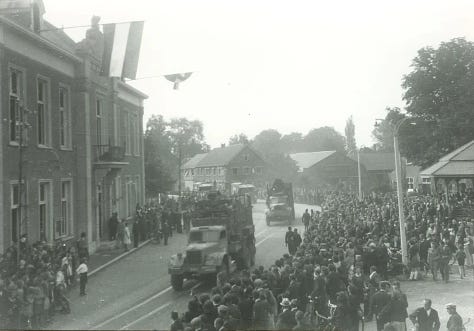
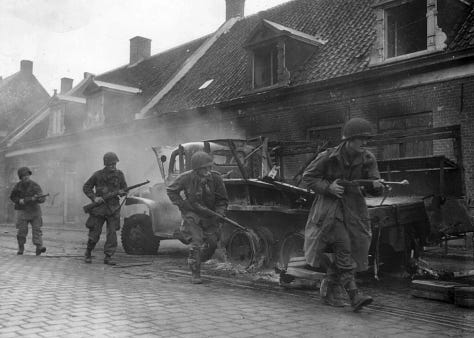
Then the British and Canadians came with the tanks and other armored vehicles.
Uncle Herb, at the age of 14, would go with the Allies on their tanks to fight the Germans. They made him his own uniform and he would be gone for days.
And while Moeder appreciated the Americans and Canadians, she despised the Brits. She said they stole everything from them including their boots. LOL!
One of the scariest moments however was when Uncle Peter, age four, managed to pick up a fully loaded machine gun from a soldier's bunk and started pointing it at people with his finger on the trigger. He wanted to be a soldier too.
Somehow my grandmother kept calm and was able to take it away from him. Afterward she let all hell fly at the officer in charge. No more weapons were ever left out for kids to grab.
Then eventually in January of 1945, my Uncle Robert was born in that warehouse. The soldiers were so excited to see life instead of death, they broke open the door so they could see my grandmother and baby. She said they laid gifts, including chocolate, all around the bed before the commander kicked them out.
The Gulikers who were alive during that time would never, ever forget the sacrifices made for their freedom nor the men who fought for them. 🇳🇱 🇺🇸
Aunt Josie wrote to Major Dick Winters many years before he passed away, thanking him for what he and his fellow paratroopers had done. He said he remembered our family and included an excerpt of her letter in his last book.
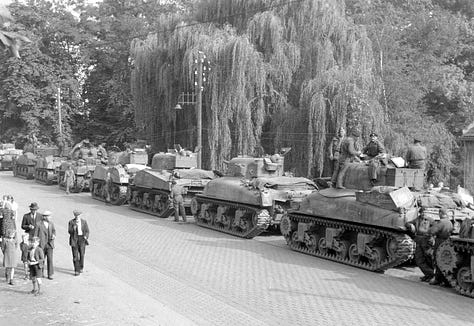

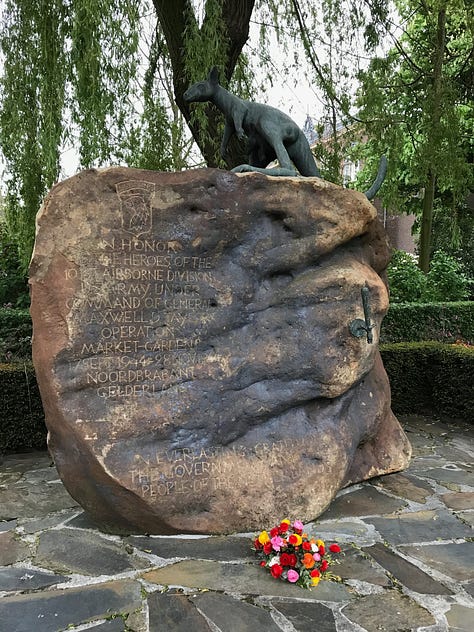
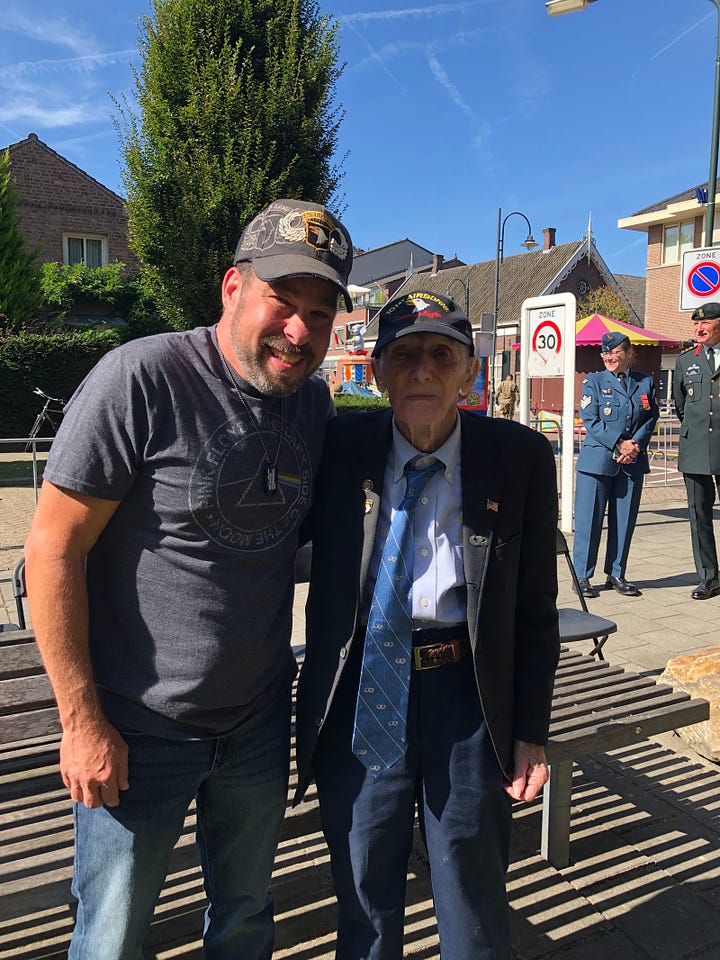
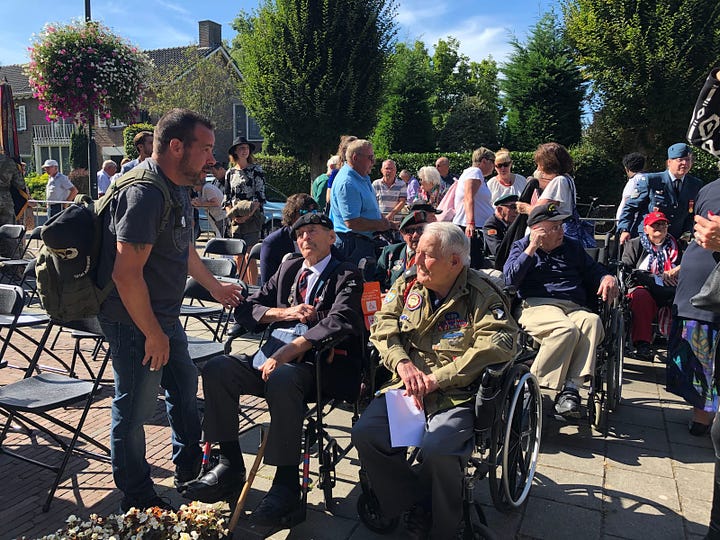
Lest We Forget
These are only a handful of stories and memories that have been shared with me over the years, and I'm truly blessed to be the steward of this family history, as well as extremely proud of my Dutch heritage.
I'm also honored to have met many 101st Airborne Division Paratroopers (and other veterans) from WWII over the years, including men who fought in Veghel. I'm confident I would not be alive today without their service and sacrifice.
This history is an important part of my life and I cherish it.


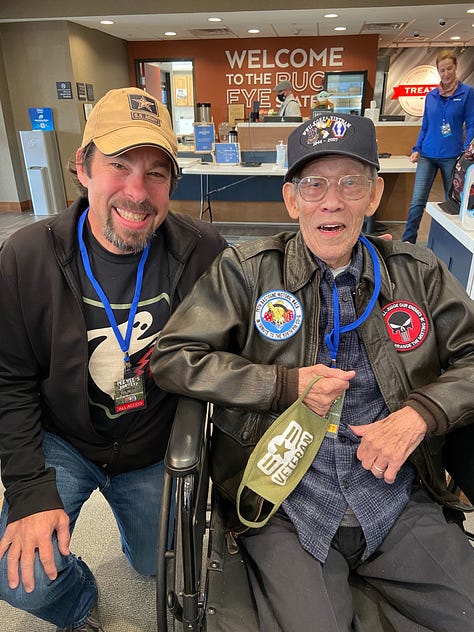
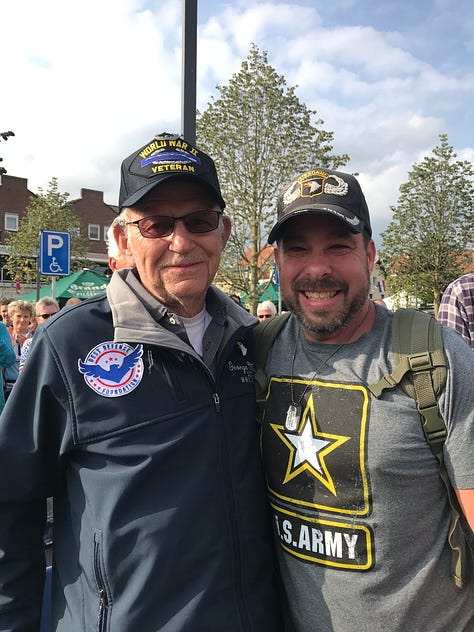
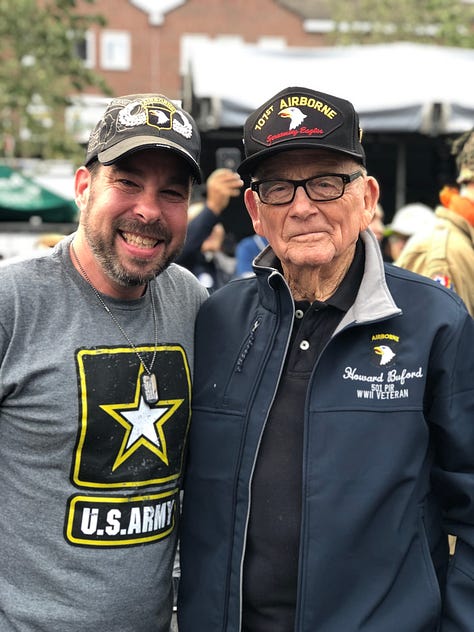
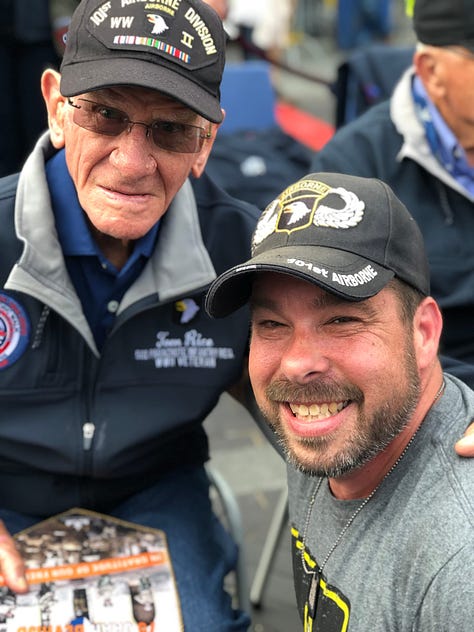
Several years ago when I visited the Netherlands for the 75th anniversary of Market Garden, I was able to stand, along with my wife and kids, in the exact places many of these stories happened. Aside from the original family members, we are the only ones to have walked in their shoes, and this is priceless.
Additionally I also made a promise to many of these World War II Veterans to never let their legacies die as long as I live, which is another reason for this website. Our lives would all be different had it not been for their courage.
Today only three of the Gulikers family members who endured the war are still alive. My mother, Johanna (who celebrates her 85th birthday on April 2nd), and Uncle Peter and Uncle Martin. Hopefully they will all reach another decade!
I'm thankful to them and their siblings for sharing what they endured before, during, and after the war.
Finally I am grateful for my dad, Jim Dalman, who instilled my passion for military history and World War II at an early age. He ignited the spark. I wish he were alive today to share these memories with me.
As I close this tribute to my grandparents, I hope we will remember that the cost for freedom is never free. Men, women, and even children paid the ultimate sacrifice to protect it.
Lest we forget. 🌺
